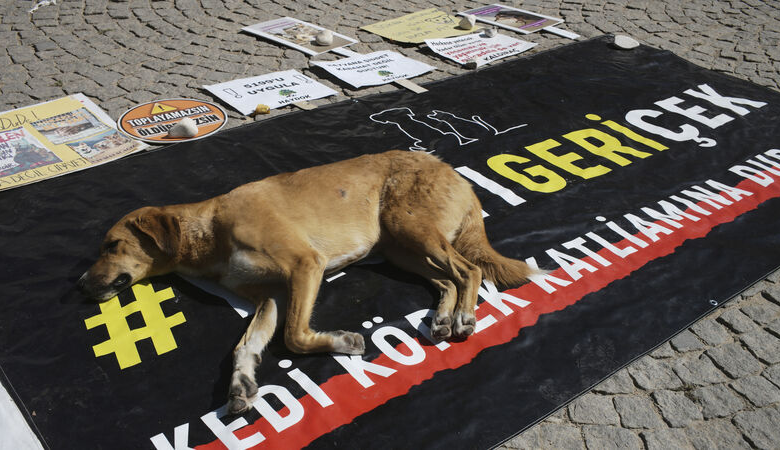Turkey’s Stray Dog Law: Understanding the ‘Massacre Law’ and Its Implications

News Mania Desk/Agnibeena Ghosh/5th August 2024
Turkey has recently enacted a controversial law aimed at addressing the country’s substantial stray dog population, a move that has sparked significant backlash from animal rights activists and opposition lawmakers. This legislation mandates the removal of millions of stray dogs from the streets, a measure seen by many as inhumane and short-sighted.
Under the new law, municipalities are required to collect stray dogs and house them in shelters. Once in these shelters, the dogs will be vaccinated, neutered, and spayed before being made available for adoption. Dogs that are suffering from severe pain or terminal illnesses will be euthanized. The Turkish government argues that this approach is necessary to manage the stray dog population, which is estimated to be around four million.
Animal rights groups, including Humane Society International, have voiced strong objections to the law. They argue that it will result in unnecessary suffering and death for countless animals without providing a long-term solution to the problem. They have urged Turkish President Recep Tayyip Erdogan to reconsider the legislation, highlighting that it fails to address the root causes of the stray dog issue.
The law was passed with a significant majority, receiving 275 votes in favor and 225 against. It includes provisions that require all municipalities to allocate at least 0.3% of their annual budget towards animal rehabilitation services and the construction or upgrading of shelters. However, municipalities have been given until 2028 to meet these requirements.
Mayors who do not comply with their responsibilities under the law face severe penalties, including imprisonment for six months to two years. Additionally, fines for individuals who abandon pets have been significantly increased, from 2,000 lira (~Rs 5,023) to 60,000 lira (~Rs 1,50,696).
Critics of the law, including veterinarians and opposition leaders, have raised concerns about the feasibility of its implementation. They question how the government will fund the necessary infrastructure for cash-strapped municipalities to build additional shelters. Currently, Turkey has 322 animal shelters with a capacity for 105,000 dogs, which is insufficient for the number of strays.
Public reaction to the law has been mixed. While some leaders and members of Erdogan’s Justice and Development Party (AKP) have defended the legislation, describing it as a “demand of the nation,” others have condemned it. Agriculture and Rural Affairs Minister Ibrahim Yumakli has referred to it as an “adoption law” rather than a “massacre law.”
In contrast, thousands of citizens have taken to the streets in protest. Demonstrations have been held in various cities, including Istanbul and Ankara, where animal lovers and activists have gathered to voice their opposition. They argue that a mass neutering campaign would be a more effective and humane solution.
Veterinarian Turkan Ceylan has pointed out the health risks associated with the new law, stating that dogs are likely to contract diseases in the shelters and vehicles used to round them up. The opposition Republican People’s Party (CHP) has announced plans to appeal against the legislation in the Constitutional Court, arguing that it is unconstitutional and fails to protect the right to life.
President Erdogan has justified the law by citing the dangers posed by stray dogs, including attacks on people and other animals, as well as traffic accidents. Despite the government’s stance, surveys indicate that the majority of Turkish citizens prefer humane solutions, with less than 3% supporting euthanasia for stray dogs and nearly 80% favoring their placement in shelters.
In summary, Turkey’s new stray dog law has ignited a heated debate over animal welfare and the best methods for managing stray populations. As the country moves forward with its implementation, the effectiveness and ethical implications of the law will continue to be scrutinized both domestically and internationally.






